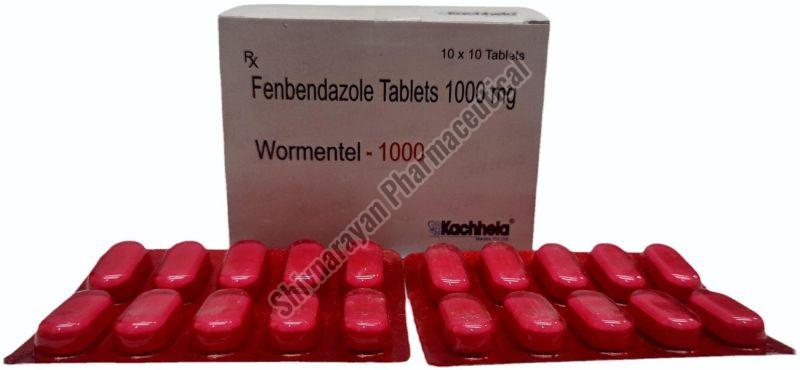fenbendazole capsules: Key Considerations Before and After Treatment
Wiki Article
Comprehending the Conveniences and Uses of Fenbendazole in Veterinary Medication
Fenbendazole has actually developed itself as an essential anthelmintic in veterinary medication. Its ability to target different parasitical infections makes it a useful tool for vets. The drug's mechanism interrupts crucial cellular procedures in bloodsuckers, causing efficient treatment results. However, its safety account differs in between varieties, demanding mindful factor to consider in its use. Comprehending these characteristics can drop light on fenbendazole's wider ramifications in veterinary care and recurring research study into its prospective beyond conventional applicationsMechanism of Action of Fenbendazole

Typical Parasitical Infections Treated With Fenbendazole
A selection of parasitic infections are successfully treated with fenbendazole, making it a flexible alternative in veterinary medication. This anthelmintic agent is especially effective versus nematodes, consisting of roundworms and hookworms, which commonly impact pet dogs and felines. It is also used for the treatment of cestodes, such as tapeworms, providing a broad range of action against both types of intestinal parasites. Furthermore, fenbendazole is beneficial in managing infections triggered by protozoa, especially Giardia, which can result in gastrointestinal distress in pets. Its efficacy encompasses dealing with particular lungworms in canines and felines, resolving respiratory health and wellness worries connected to these bloodsuckers. In general, fenbendazole's capacity to target numerous parasitic types makes it a valuable device in vet technique, making sure the wellness and well-being of pet dogs influenced by these common infections.Safety and Efficacy in Various Pet Variety
The security and efficiency of fenbendazole vary among different animal varieties, underscoring the relevance of species-specific factors to consider in veterinary medicine. In dogs, fenbendazole is normally well-tolerated and efficient versus a variety of gastrointestinal bloodsuckers, including roundworms and hookworms. For felines, however, its use is much less typical and might require careful application as a result of potential damaging reactions.In animals, such as livestock and sheep, fenbendazole demonstrates efficiency against various endoparasites, adding to improved health and wellness and productivity. The pharmacokinetics and possible side effects can vary substantially in between species, demanding careful evaluation by veterinarians.
Equines additionally respond positively to fenbendazole, especially for dealing with strongyles and ascarids, though dosage and administration routes should be tailored to their unique physiology. Recognizing these differences is important for maximizing therapy outcomes and ensuring pet well-being across diverse species.
Administration and Dose Standards
Correct administration and dosage guidelines are important for making best use of the therapeutic impacts of fenbendazole while decreasing prospective side effects. The dosage commonly varies depending upon the varieties being dealt with, the particular problem, and the formula of fenbendazole utilized. fenbendazole capsules. For dogs and cats, a common dosage is 50 mg/kg body weight, carried out as soon as daily for 3 successive days, but vets may readjust this based upon specific wellness evaluationsIt is necessary to carry out fenbendazole with food to enhance absorption and lessen stomach distress. The medicine is available in numerous forms, consisting of granules and paste, enabling versatile administration options. Checking the animal's action throughout and after treatment is suggested to verify effectiveness and safety. In addition, veterinary support is essential to determine the suitable duration of therapy based upon the kind of parasitic infection being addressed, assuring excellent outcomes for the pet's health and wellness.
Future Point Of Views and Research on Fenbendazole
Research study on fenbendazole continues to develop, focusing on its possible applications beyond typical antiparasitic uses. Recent studies have actually discovered its performance in treating various types of cancer cells, particularly in vet oncology. Preliminary information suggest that fenbendazole might hinder the development of tumor cells and improve the results of other chemotherapeutic representatives.Researchers are examining its duty in managing intestinal problems in pets, highlighting its anti-inflammatory residential properties. The versatility of fenbendazole for different types questions about its safety accounts and perfect dosing regimens in varied populaces.
As rate of interest grows, there is a requirement for thorough medical trials to establish evidence-based guidelines for these unique applications. Future study may additionally examine the systems behind fenbendazole's impacts, possibly leading the way for innovative therapeutic strategies in vet medication. The continuous exploration of fenbendazole might greatly enhance therapy alternatives for numerous vet problems.

Frequently Asked Concerns
Is Fenbendazole Safe for Pregnant Animals?
The safety of fenbendazole for expectant animals continues to be unclear. While some researches recommend very little threat, vets generally advise caution and commonly advise against its usage during pregnancy unless the advantages plainly outweigh prospective threats.Can Fenbendazole Be Made Use Of in Livestock?
Fenbendazole is frequently utilized in livestock to treat different parasitic infections. fenbendazole. Its effectiveness versus stomach worms makes it a beneficial anthelmintic, adding to boosted wellness and performance in animals increased for food and fiberWhat Are the Negative Effects of Fenbendazole?

The negative effects of fenbendazole might consist of gastrointestinal disturbances, lethargy, and allergies. In rare fenbendazole 444 instances, extra extreme reactions can occur, demanding mindful tracking and assessment with a vet during treatment.
Just How Does Fenbendazole Compare to Various Other Dewormers?
Fenbendazole supplies broad-spectrum efficiency versus various parasites, often comparing positively to various other dewormers. Its distinct device targets various life stages, making it effective, while normally providing a favorable safety and security profile contrasted to alternatives offered on the marketplace.Can Fenbendazole Be Utilized for Dealing With Cancer Cells in Animals?
The possibility of fenbendazole in dealing with cancer cells in animals has actually gathered rate of interest. Initial studies suggest it might inhibit cancer cells cell development, but even more study is necessary to validate its efficacy and security in vet oncology.Report this wiki page